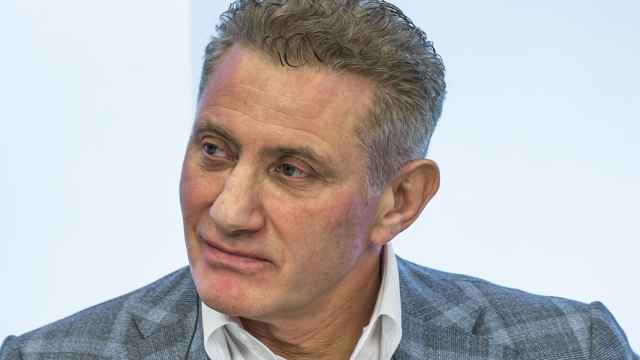Federal Migration Service Director Konstantin Romodanovsky said Wednesday that the number of highly qualified foreign specialists who have received documentation to work in Russia since the introduction of eased restrictions in July has reached 2,610.
Under legislation that took force on July 1, employers can apply for visas for highly qualified foreign specialists — defined as those who earn more than 2 million rubles ($63,500) per year — under a preferential work permit and work visa regime.
“We receive almost 50 applications for this type of migrant every day,” Romodanovsky said.
Romodanovsky said the types of firms using the new law varied widely, but singled out French companies and banking institutions as particularly active.
The 2 million ruble salary threshold only exists “for the time being,” Romodanovsky said.
He said his department is looking to differentiate further: both to widen the category of foreign specialists that the new law encompasses and increase the preferential nature of their immigration status.
“We are moving in a direction where we can widen the circle of possible participants — companies working in Russia — to attract intelligent, talented and willing people,” he said.
The Federal Migration Service’s role is to check that the applications meet the requirements. Romodanovsky encouraged employers to take advantage of the new system. “The rest is in your hands,” he said.
Russia has traditionally fared poorly in comparison with the visa regimes for skilled workers of other emerging markets, which companies frequently site as an obstacle to investment and expansion.
About 20,000 foreign specialists arrive annually, Romodanovsky said, but as part of the modernization drive, the migration service foresees a need for up to 46,000.
Romodanovsky also touched on discussions with the European Union concerning a mutual relaxation of visa conditions — an issue that has been repeatedly raised by President Dmitry Medvedev and, more recently, by Prime Minister Vladimir Putin on a visit to Germany last month.
“It is not a simple relationship,” Romodanovsky said, bemoaning the fact that while Russia was prepared for a “more intimate” interaction, little apart from reassurances were forthcoming from the EU. An announcement, however, of some positive steps forward could be expected before the end of the year, he said.
A Message from The Moscow Times:
Dear readers,
We are facing unprecedented challenges. Russia's Prosecutor General's Office has designated The Moscow Times as an "undesirable" organization, criminalizing our work and putting our staff at risk of prosecution. This follows our earlier unjust labeling as a "foreign agent."
These actions are direct attempts to silence independent journalism in Russia. The authorities claim our work "discredits the decisions of the Russian leadership." We see things differently: we strive to provide accurate, unbiased reporting on Russia.
We, the journalists of The Moscow Times, refuse to be silenced. But to continue our work, we need your help.
Your support, no matter how small, makes a world of difference. If you can, please support us monthly starting from just $2. It's quick to set up, and every contribution makes a significant impact.
By supporting The Moscow Times, you're defending open, independent journalism in the face of repression. Thank you for standing with us.
Remind me later.






